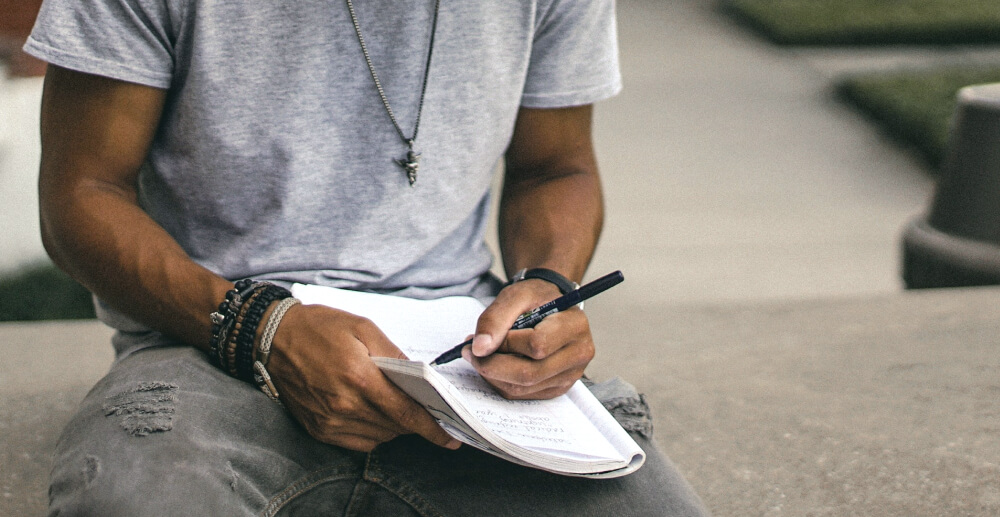Heading home for the holidays in early recovery, or hosting someone in early recovery this holiday season? These tips can help everyone enjoy the holidays together.
The holidays are the most wonderful time of the year… Or are they? In early recovery, family relationships can be strained. The holidays, rather than acting as a time for us to come together, can magnify the ways in which addiction has torn us from friends and family over the years. But that doesn’t mean you need to stay disconnected. We have tips on how to navigate heading home for the holidays in early recovery, and some tips for family members and friends hosting someone in early recovery this holiday season.
If you’re in early recovery and heading home to family members for the holidays:
-
Remember that staying home is an option.
Setting boundaries with family can be a struggle both in and out of recovery, but saying no to something you aren’t looking forward to can be wise. It may save you later resentment for suffering through something an event you didn’t really want to attend. Especially if your family is using drugs or alcohol in a way that is triggering for you, kindly saying thank you for the invitation but ducking out of the event entirely can save your peace of mind and save you from a sticky situation.
-
Take time out for self-care.
Whether it’s stepping away to meditate, exercise, or attend a recovery meeting, there’s no reason to holiday as hard as you drank and used. If you’re the kind of person who gets caught up in social situations and forgets self-care entirely, set a reminder on your phone or make some general goals before you get there.
-
Head in with an attitude of service.
The holidays aren’t the best time to try to pick over past wrongs. They are, however, a great time to get out of yourself and help others. Offer to bring a side dish, set the table, and ask what everyone has been doing. One of the gifts of sobriety is an opportunity to reconnect with, and really learn to care about, others. If you’re nervous, focusing on service will get you out of your own head.
-
Come with activities in mind you’d like to do with your family.
If your family’s idea of a holiday celebration is usually sitting around, arguing, and drinking cocktails, suggest seeing a movie together or taking a walk. They may not know that you’d like to do anything different than their usual activity (drinking) unless you suggest it.
-
Remember your recovery is uniquely your own.
How much you choose to reveal to your family about your recovery is entirely up to you. Whether you’re using medication for recovery or not, is also up to you to reveal. You will explain more about recovery through your actions than you will through any words, so showing up happy and healthy is better than any promise you can make.
-
Stay connected to your supports.
Take time to message your recovery coach, check-in with your sponsor, or call an understanding friend in recovery. If you think your family has the space, ask if you can bring along a friend supportive of your recovery to join you in celebrating the holiday.
“One of the gifts of sobriety is an opportunity to reconnect with, and really learn to care about, others. If you’re nervous, focusing on service will get you out of your own head.”
If you’re a family member or friend hosting someone in early recovery:
-
Don’t take boundary-setting personally.
If your family member says they aren’t able to make it, or they choose to head home early, remember it isn’t about you or your event. Early recovery is full of raw emotion, and many people choose to build up to certain social situations over time.
-
Give them space for self-care.
If your family member needs to duck out on Thanksgiving or Christmas for a 12-step meeting, or heads into their room or car to check in with a recovery coach or join an online recovery group, honor their needs. For those in recovery, self-care activities like exercise, meditation, and checking in with supportive people are as important as brushing our teeth. And if you need to take some time out for yourself? Do it.
-
Ask about substances ahead of time.
If your holiday gatherings are normally inclusive of alcohol or drugs, ask your recovering family member if this is okay for them. If you aren’t willing to eliminate alcohol or drugs from your celebration, let them know you will have alcohol or drugs at your holiday celebrations, so they can choose to attend or not attend based on what is right for them.
-
Have non-alcoholic drinks available.
For those of us in recovery from alcohol addiction, having a non-alcoholic drink in-hand can help us blend at parties. People won’t continually offer us a (usually alcoholic) drink if they see we’re already drinking something. Not sure what to make? Check out our mocktail recipes.
-
Be open and curious, rather than judgmental.
If you’re skeptical of your loved one’s recovery (maybe they’ve tried it before and failed), remember that addiction is a chronic disease, and many people relapse before finding long-term recovery. You can help them on their journey by being interested in and curious about their new experiences, rather than doubting or judging.
For those of us in early recovery, the holidays can remind us of past rifts and wrongs, but they also present new opportunities for mending broken relationships. Healthy boundaries and clear communication can help start the holiday season with a clean slate for forging future connections. So whether or not your holidays are all the way happy, here’s to a holiday season that is healthy in recovery.
Don’t have friends or family to be spending the holidays with? That’s okay too. Read Kali’s story, Alone on Christmas, for strategies on how to cope when spending the holidays alone.








